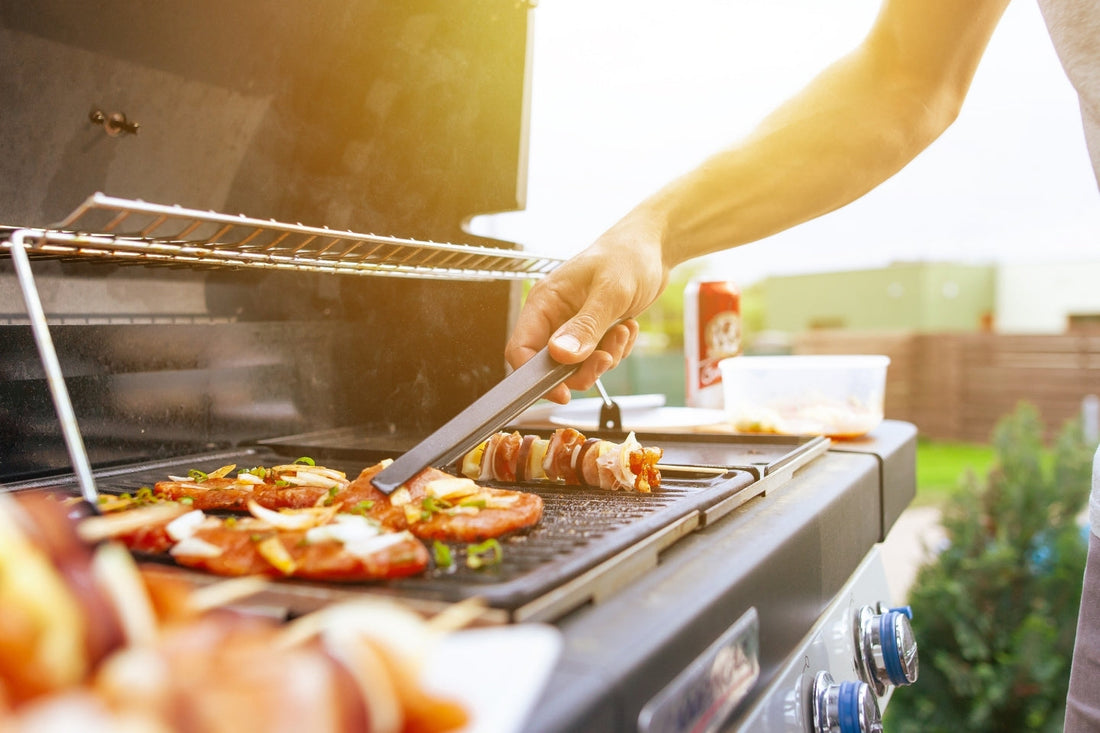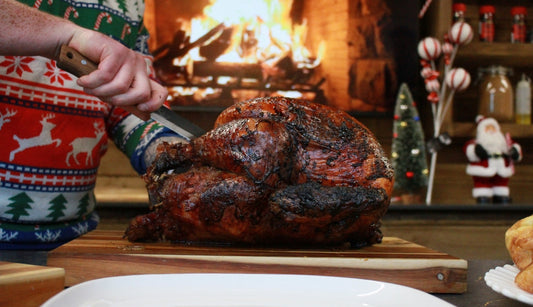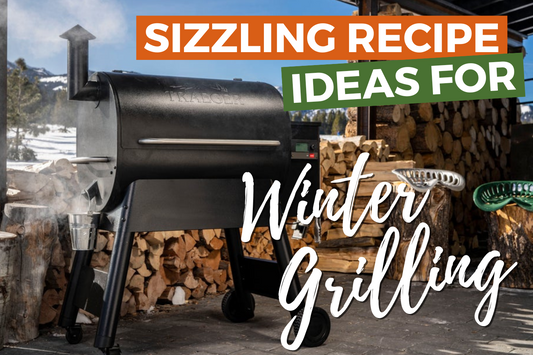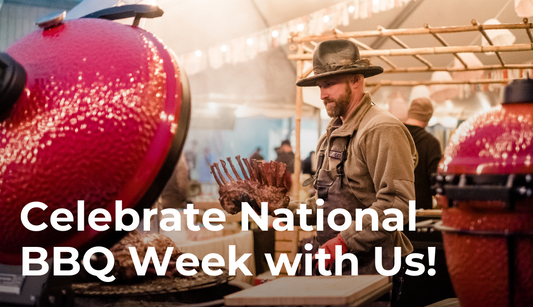Barbecue season always raises the same question: which type of grill is best? Gas, charcoal and pellet grills each offer their own style of cooking, flavour and convenience. Choosing the right one depends on how you like to cook, how much time you have and what sort of taste you want to achieve. This guide compares gas, charcoal and pellet grills, weighing up their strengths and drawbacks to help you decide which is right for you.
If you would like to take your outdoor cooking further, you can also visit our BBQ School where we run classes on different methods, recipes and techniques. Or, if you prefer to see the latest models in person, our Barbecue Showroom offers a wide range of grills with expert advice.
Gas Grills
Gas barbecues are a common sight in gardens across the UK. They use propane or natural gas, which allows you to light them quickly and control the heat with precision.
Advantages of Gas Grills
-
Ease of use: Gas grills ignite at the turn of a knob. You do not need to wait for coals to heat up or ash to burn down.
-
Temperature control: Burners can be adjusted instantly, letting you cook different foods at different temperatures. This makes them ideal for cooking steaks, burgers and vegetables in one session.
-
Low maintenance: With no ash to clean up, gas barbecues are easier to keep tidy. Grease trays usually slide out for quick washing.
-
Consistency: Once you set the temperature, it remains steady. This is helpful for longer cooking sessions.
Disadvantages of Gas Grills
-
Flavour: Purists argue that gas cooking lacks the smoky character of charcoal or pellets. Some models include smoker boxes to add wood chips, but the taste is usually lighter.
-
Cost: Gas barbecues tend to be more expensive than basic charcoal grills, especially larger models with multiple burners.
-
Size: Many gas units are bulky and take up a lot of space on a patio.
Gas barbecues suit those who want quick results, minimal fuss and reliable performance. If you often cook for family and friends on weeknights or prefer convenience over smoke, gas is a good choice.
Charcoal Grills
Charcoal is the traditional choice and remains popular with BBQ enthusiasts. It takes more time and effort, but many people feel the flavour makes it worthwhile.
Advantages of Charcoal Grills
-
Authentic taste: Cooking over charcoal produces a distinct smoky flavour that many consider unbeatable.
-
High heat: Charcoal can reach higher temperatures than most gas grills, perfect for searing steaks.
-
Affordable: Basic kettle grills are usually much cheaper than gas or pellet models.
-
Portable options: Many charcoal barbecues are small and easy to take on camping trips or to the beach.
Disadvantages of Charcoal Grills
-
Time: Charcoal takes 20 to 30 minutes to heat up, and you must wait until the flames die down before cooking.
-
Temperature control: Adjusting vents and moving coals can be tricky, especially for beginners. It takes practice to master.
-
Cleaning: Ash needs to be emptied after each use, and handling fuel can be messy.
-
Inconsistent heat: Maintaining steady temperatures for slow cooking can be challenging.
Charcoal barbecues are best for those who enjoy the process as much as the food. They reward patience and give a genuine smoky flavour. If you like the ritual of lighting coals and do not mind getting your hands dirty, charcoal could be your match.
Pellet Grills
Pellet grills are a newer style of barbecue that use compressed wood pellets as fuel. An electric auger feeds pellets into a firepot, maintaining consistent heat while adding a rich smoky flavour.
Advantages of Pellet Grills
-
Flavour variety: Pellets come in different wood types such as oak, hickory, cherry and apple, letting you experiment with flavours.
-
Ease of control: Digital controllers manage temperature automatically, so you do not need to adjust vents or burners.
-
Versatility: Pellet grills work well for both low and slow cooking, like brisket or ribs, and higher heat searing.
-
Set and forget: Once loaded, the grill maintains heat with little effort. You can leave it running for hours without constant supervision.
Disadvantages of Pellet Grills
-
Electricity needed: Pellet grills need a power source to run the auger and controller, so they are not ideal for every outdoor setting.
-
Price: They are generally more expensive than charcoal grills and sometimes more than gas models too.
-
Maintenance: Pellets must be kept dry, and augers need occasional cleaning.
-
Less portable: Because of their design, pellet grills tend to be heavier and not as easy to move.
Pellet grills suit those who love slow cooking and want smoky flavour without the effort of tending to coals. They are especially popular among barbecue fans who enjoy smoking large cuts of meat.
Picking Your Perfect BBQ Partner
There is no single best barbecue. Gas, charcoal and pellet grills all shine in different ways. For some, convenience matters most, making gas the practical option. For others, the smoky taste and ritual of charcoal is part of the enjoyment. Pellet grills strike a middle ground, offering flavour with modern control.
Before buying, think about how much time you want to spend cooking, what flavours you like and how often you will use your grill. With that in mind, you can choose the barbecue that turns every outdoor meal into a highlight of the season.
For more guidance, why not book a session at our BBQ School to learn hands-on cooking techniques from an experienced instructor? Or, if you want to see the full range of grills in person, visit our Barbecue Showroom where you can compare gas, charcoal and pellet models side by side.



